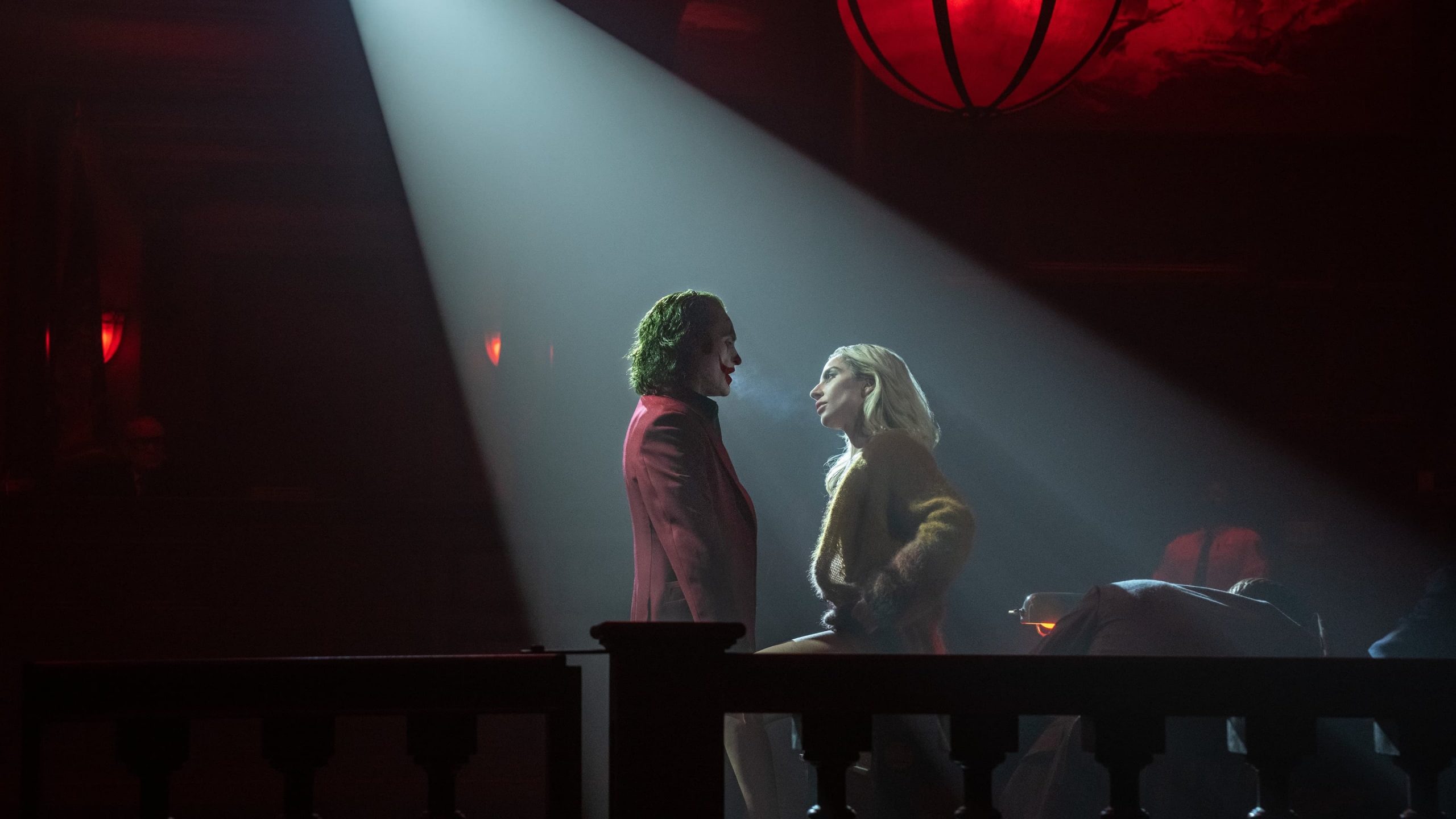
Film Critic Lizzie Smolenskaia probes Joker: Folie à Deux, and finds more to admire in the musical return of Joaquin Phoenix as its title character than most
Joker: Folie à Deux has been met with overwhelming disappointment, with many viewers reportedly leaving early during screenings. Rotten Tomatoes has given the film a 33% critical score, and an equally poor audience mark of 32%. Considering the success of its critically acclaimed predecessor, Joker, which won Joaquin Phoenix a Best Actor Oscar in 2020, the new release pales in comparison; the film seems doomed to ultimately flop at the box office. I, however, am inclined to go against the current, and believe the snowballing criticism is largely misjudged.
After the first film’s success, and subsequent years of anticipation about a follow-up, Folie à Deux‘s reputation as a mass let-down has spread by word of mouth like wildfire. A recurring criticism has emphasised that this film focuses far more on the psychology of Phoenix as Arthur Fleck/Joker than the progression of a plot.
We follow Fleck’s incarceration after his murder spree in the prior instalment: during his containment, he meets Harleen ‘Lee’ Quinzel (Lady Gaga) and they promptly fall madly in love during his trial. ‘Folie à Deux’ (lit. ‘madness of two’) may, funnily enough, be interpreted in two ways. There is the madness of Arthur Fleck and his struggle with his ‘Joker’ personality, and the shared madness between Arthur and Lee. The start of the film frames this split with a Looney Tunes cartoon illustrating the Joker with his sabotaging shadow, having a personality of its own. This animated sequence sets out the tone of the film which combines the depression of Arthur with Joker’s erratic behaviour.
Joaquin Phoenix’s performance is, without a doubt, phenomenal. No matter what viewers say about the film’s questionable direction, Pheonix does not disappoint. The conscience of Arthur Fleck, faced with an all-but guaranteed death sentence as he awaits trial in Arkham State Hospital, struggles with the ramifications of his crimes. Meanwhile, his lawyer (Catherine Keener) is arguing the defence of a dissociative personality disorder.
No matter what viewers say about the film’s questionable direction, Phoenix does not disappoint
The film’s central question is that of the ‘Joker’ alter ego itself: is it even a second personality at all? Does it matter? It feels somewhat irrelevant to argue about diagnosis; certainly Arthur is deeply mentally troubled as a result of his abusive childhood and failing career in stand-up comedy, and as such he finds solace in the attention his ‘Joker’ persona attracts. Fleck struggles with understanding this identity: during an interview behind bars with a television personality (Steve Coogan), he appears unable to articulate what motivated his murders.
Is this a musical, or not? At any rate, the musical scenes performed by both stars are spectacular. Singing in the film is largely a device used to deliver Arthur Fleck’s turmoil, and it only begins happening at the halfway mark after the introduction of Lee. During the film’s marketing campaign, director Todd Phillips released a statement labelling the film a musical, although Gaga contradicted this claim due to the nuanced way it uses its musical elements. It very much differs from the form of a conventional musical; if anything it would have benefited from fewer musical scenes, which at times become excessive considering the thriller they are cast against.
At any rate, the musical scenes performed by both stars are spectacular
Verdict
7/10
Joker: Folie à Deux is in cinemas, and will be available to stream digitally on October 29th. You can view its trailer here.
Comments